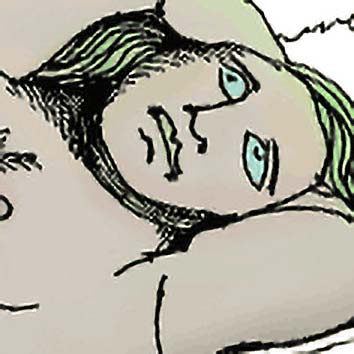GAIA
Greek Goddess
Also known as Ga, Gaea, Gaiea, Ge

The one and only big vista Earth Mother Goddess
Born of Chaos, she gave birth to Pontus, the sea, and Uranus the sky. A cuddle or two with Pontus resulted in the appearance of several bonus extra sea deities such as Thaumas.
Then she married Uranus and became the unfortunate mother of the huge Titans, the Cyclopes and the Hecatonchires.
Her husband was shocked at the nature of their offspring, so to protect them all she decided to hide them. The best hiding place she could find was inside her own body. Which was terribly uncomfortable for all concerned. Luckily her youngest, Cronus, came to the rescue armed with a large cutting tool.
But all that’s behind her now. She became best friends with Hera, giving her the Golden Apples of Immortality as a wedding present, and always gathered the utmost respect. As fertile as they come, her offspring also includes Acheron, the God of Rivers, Python, and who knows who else.
Nowadays, Gaia is a Big Mother in the New Age world. Symbolizing all that’s good with femininity, nature, fertility and spirit, she’s extremely popular with Pagans, Witches and all Earthy types.
Gaia Facts and Figures
Name: Gaia
Pronunciation: Coming soon
Alternative names: Ga, Gaea, Gaiea, Ge
Gender: Female
Type: Goddess
Celebration or Feast Day: Unknown at present
Role: Unknown at present
Good/Evil Rating: NEUTRAL, may not care
Popularity index: 15744
Gaia Relationships
Consorts: Uranus, PontusChildren: Briareus, Coeus, Cottus, Crius, Cronus, Cyclopes, Eurybia, Gyges, Hecatonchires, Hyperion, Iapetus, Mnemosyne, Oceanus, Phoebe, Pontus, Rhea, Tethys, Thaumas, Thea, Themis, Titanides, Titans, Uranus
Common questions about Gaia
Cite this article
Here's the info you need to cite this page. Just copy the text in the box below.
Article last revised on September 06, 2018 by Rowan Allen.
Editors: Peter J. Allen, Chas Saunders
References: Coming soon.